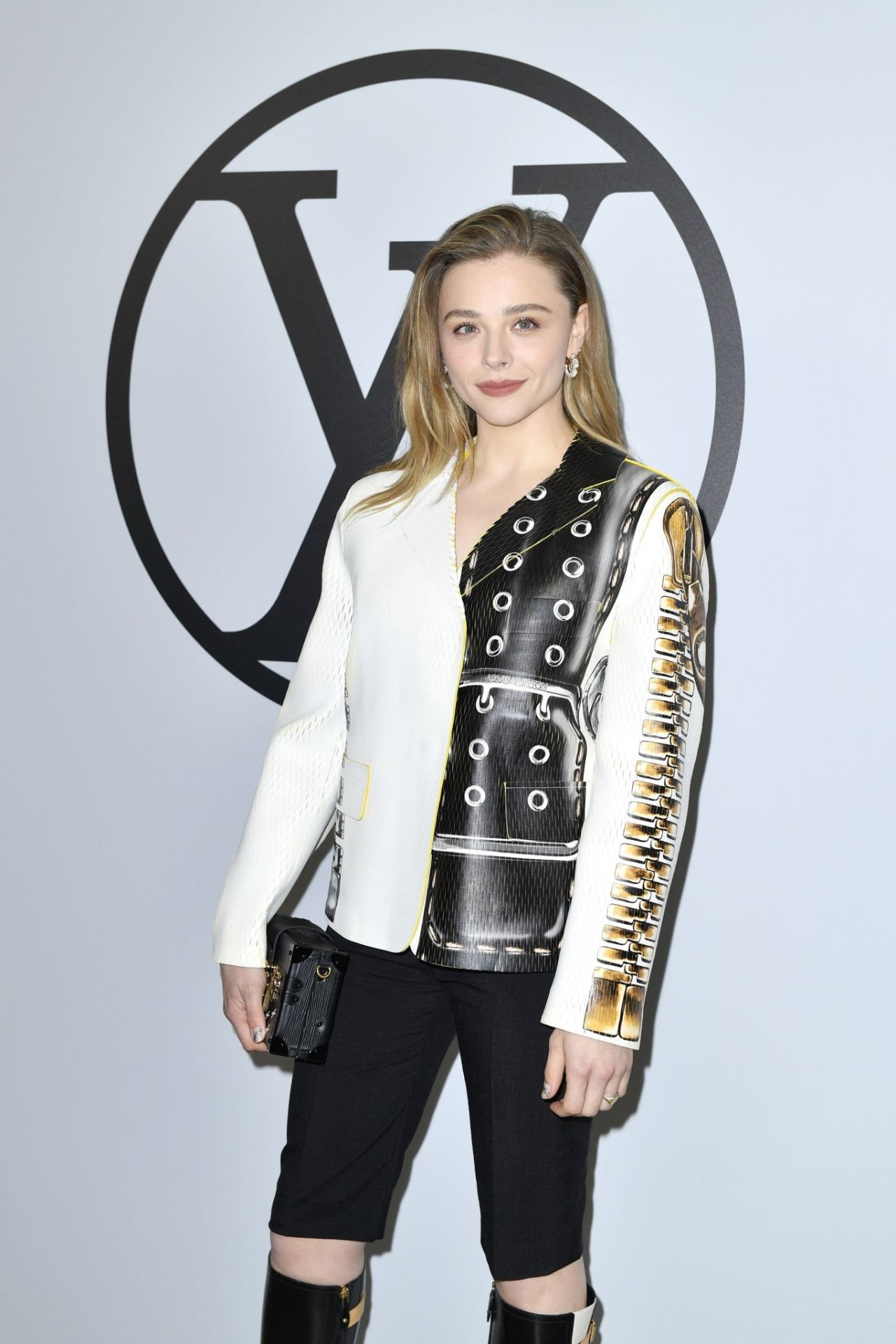Understanding Online Searches: A Look At "Chloe Jade Lopez Naked" And Digital Footprints
Detail Author:
- Name : Toni Kub
- Username : mckayla.little
- Email : yost.zetta@gleason.info
- Birthdate : 1973-02-09
- Address : 732 Betty Well Apt. 981 Marjorychester, NH 21316
- Phone : +1 (228) 541-0625
- Company : Stanton-Witting
- Job : Industrial Engineer
- Bio : Rerum et repudiandae alias ea tempora rem laudantium quia. Doloremque quaerat aut ut. Voluptatem adipisci possimus dolorem ad minus autem. Rerum iure qui dolorem est enim.
Socials
facebook:
- url : https://facebook.com/charitychristiansen
- username : charitychristiansen
- bio : Necessitatibus dolor dicta officia facilis rerum quia.
- followers : 1554
- following : 154
tiktok:
- url : https://tiktok.com/@christiansenc
- username : christiansenc
- bio : Et fuga quo molestiae aut sed ratione.
- followers : 1897
- following : 2480
linkedin:
- url : https://linkedin.com/in/cchristiansen
- username : cchristiansen
- bio : Deleniti perferendis aut cum perspiciatis.
- followers : 6875
- following : 2432
instagram:
- url : https://instagram.com/cchristiansen
- username : cchristiansen
- bio : Ut unde incidunt atque eos omnis quo. Maiores in eveniet voluptatem aut.
- followers : 6768
- following : 141
It's almost as if the internet has a way of holding onto every little piece of information, isn't that right? When people look up phrases like "Chloe Jade Lopez naked," it really opens up a bigger conversation about how we use the internet and what we find there. This kind of search, you know, often points to a curiosity about public figures and their online presence. It also highlights, in a way, just how much content is out there, and how important it is to think about what we're looking at and sharing. We're going to explore what these kinds of searches mean, not by focusing on the specific content, but by thinking about the broader picture of online privacy and responsible browsing.
There's a lot to consider when a name like Chloe Jade Lopez comes up in searches, especially with a descriptor like "naked." It's a phrase that, frankly, sparks a lot of interest and, perhaps, some questions about privacy and what's okay to share or seek out online. Our digital world is pretty vast, and it holds so many different kinds of information. So, it's really worth taking a moment to understand the bigger picture behind these searches.
This discussion isn't about the specific content itself, but more about the landscape of online information. We'll touch on how our searches can affect others, and how we can all be a bit more thoughtful in our online actions. It's about being aware of the digital traces we leave and the impact we have, which is pretty important, honestly, in this connected age.
Table of Contents
- Who is Chloe Jade Lopez?
- Understanding Online Searches and Privacy
- The Impact of Digital Footprints
- Responsible Information Seeking Online
- Protecting Your Digital Self
- Navigating Public Figures and Online Content
- Frequently Asked Questions
Who is Chloe Jade Lopez?
When you hear a name like Chloe Jade Lopez, it's often linked to a public persona, someone who has a presence in entertainment or media. People, you know, often become curious about individuals who are in the public eye, and this curiosity can lead to all sorts of searches online. It's a natural thing to want to know more about someone whose work you might have seen or heard about. However, it's also true that being a public figure means that a lot of information, and sometimes misinformation, can circulate about you.
The internet, in a way, acts like a massive library where all sorts of details about people are stored. For individuals like Chloe Jade Lopez, their professional life and public image are often quite visible. Yet, it's really important to remember that even public figures have a right to their personal space and privacy. What we see online is often just a part of the whole story, and it's good to keep that in mind when we're browsing.
Personal Details and Biography
It's interesting to consider how much information is readily available about public figures, and how much isn't. When we talk about someone like Chloe Jade Lopez, we're usually referring to a person who has chosen a career that places them in the public eye. Details about their professional journey are often shared, perhaps through interviews or public announcements. Yet, their personal life, like anyone else's, remains their own. Below is a general idea of the kind of public information one might find about a performer, keeping privacy in mind.
| Category | Details (General Public Information) |
|---|---|
| Profession | Performer / Public Figure |
| Known For | Various public appearances and projects. |
| Online Presence | Active on social media platforms, with public profiles. (For example, references in "My text" like Chloe Amour official 💖 link in bio (@chloeamour) hint at a social media presence.) |
| General Location | Associated with Los Angeles, CA, United States (as noted in provided text for related public figures). |
Understanding Online Searches and Privacy
When you type something into a search engine, you're not just looking for information; you're also, in a way, contributing to a pattern of what people are interested in. Searches like "Chloe Jade Lopez naked" show a pretty specific kind of interest, and it's a good moment to pause and think about the privacy implications involved. Every search, every click, it all adds up to a kind of digital footprint. This footprint can reveal a lot about our own interests, but it also impacts the people we're searching for, especially if they are public figures.
It's very important to remember that privacy is a fundamental right, even for those who are in the public eye. Just because someone is a performer or has a public profile doesn't mean every aspect of their life is fair game for public consumption. There's a clear line, you know, between public professional information and private personal details. Respecting that line is a big part of being a responsible internet user. We all have a role to play in keeping the online world a safer place, and that definitely includes how we approach sensitive searches.
The information we find online, particularly about individuals, can sometimes be misleading or even completely false. This is why a critical eye is so important. Just because something appears in a search result doesn't mean it's accurate or that it was shared with consent. Thinking about the source of information and its potential impact is a crucial step in maintaining a healthy and ethical online experience. So, it's not just about what you search for, but how you interpret and use what you find, which is pretty significant.
The Impact of Digital Footprints
Every time you go online, you leave a little trail, a kind of digital footprint, so to speak. This footprint is made up of all your activities: the websites you visit, the things you search for, the comments you leave, and the content you share. For public figures like Chloe Jade Lopez, their digital footprint is often much larger and more visible, simply because their work puts them in the public sphere. This means that what's out there about them can be seen by many, many people, which is quite a thought, isn't it?
The impact of this digital footprint can be really profound. For individuals, it shapes their online reputation and how they are perceived by others, both personally and professionally. A search term like "Chloe Jade Lopez naked," for instance, can contribute to a certain narrative about a person, regardless of its accuracy or whether the content was shared willingly. This is why understanding the longevity of online content is so important; once something is out there, it's very, very hard to remove it completely.
Moreover, the existence of such content can have real-world consequences for the individuals involved. It can affect their careers, their personal relationships, and their overall well-being. So, when we're thinking about our own online behavior, it's not just about what we search for ourselves, but also about how our searches and the content we engage with might contribute to or perpetuate information that could be harmful to others. It's a bit like, you know, throwing a pebble into a pond; the ripples can spread far and wide, and it's worth considering that.
Responsible Information Seeking Online
When you're looking for information online, especially about people, it's really helpful to approach it with a sense of responsibility. This means thinking about why you're searching for something, and what you plan to do with the information you find. For a search like "Chloe Jade Lopez naked," the intent might be curiosity, but the ethical way to satisfy that curiosity doesn't involve seeking out or sharing content that might be private or non-consensual. It's about respecting boundaries, even in the vastness of the internet.
One key aspect of responsible information seeking is to be a critical thinker. Not everything you see online is true, or even ethically obtained. So, before you click on a link or believe a claim, it's a good idea to consider the source. Is it a reputable news outlet? Is it someone's personal blog? Does it seem too sensational to be true? Asking these kinds of questions can help you, you know, sort through the vast amount of information out there and focus on what's reliable and respectful.
Another part of being responsible is understanding the difference between public information and private information. While some public figures share aspects of their lives as part of their profession, that doesn't give everyone permission to delve into every private detail. This is particularly true for images or videos that might be intimate or personal. So, it's always best to err on the side of caution and respect privacy, even if the content is seemingly available. It's just a better way to engage with the online world, honestly.
Protecting Your Digital Self
Just as we think about protecting our physical selves, it's also pretty important to protect our digital selves. This means being mindful of what information we put out there and how we interact with the content of others. For individuals, whether they are public figures or not, maintaining a degree of digital privacy is crucial. This can involve using strong passwords, being careful about what you share on social media, and understanding the privacy settings on various platforms. It's about taking control, in a way, of your own online story.
One practical tip for protecting yourself online is to regularly review your privacy settings on social media and other accounts. These settings often change, and what was private yesterday might be public today without you even realizing it. It's also a good idea to be cautious about clicking on suspicious links or downloading files from unknown sources, as these can sometimes lead to security breaches. So, a little bit of vigilance can go a long way in keeping your personal information safe, which is something we all want, isn't it?
Furthermore, it's helpful to be aware of the kind of information that is collected about you when you browse the internet. Many websites use cookies and trackers to understand your interests and browsing habits. While some of this is harmless, it's worth knowing what information is being gathered and how it might be used. Tools like ad blockers or privacy-focused browsers can help, in some respects, limit this tracking. It's about being informed and making choices that feel right for you and your comfort level online.
Navigating Public Figures and Online Content
Public figures, like those mentioned in "My text" such as Chloe Amour or Chloe Dykstra, often have a very active online presence, sharing their work and connecting with fans. This connection is, you know, a really positive aspect of the internet. However, it also means that their lives are under a bit more scrutiny than the average person's. Navigating this landscape of public figures and online content requires a thoughtful approach, both from the public figures themselves and from us, the audience.
When you encounter content related to public figures, especially content that seems personal or sensitive, it's always a good idea to question its origin and purpose. Is this content meant to be public? Was it shared with consent? These are important questions to ask, because, honestly, not all content that appears online is there legitimately or ethically. Supporting public figures means respecting their boundaries and their right to privacy, even when their work puts them in the spotlight.
The internet provides amazing opportunities to discover new artists and connect with people from all walks of life. We can learn more about their work on our site, and perhaps even find out about their creative processes. However, it's also a place where information can be distorted or used in ways that are not helpful. So, by choosing to engage with content responsibly and ethically, we can contribute to a more positive and respectful online environment for everyone, including those who are in the public eye. It's about being a good digital citizen, really.
Frequently Asked Questions
People often have questions about online content, especially when it involves public figures. Here are some common inquiries, reframed to focus on responsible internet use and privacy:
What are the privacy implications of searching for personal content online?
When you search for personal content, even if it's about a public figure, it contributes to a demand for that type of information. This can, in a way, inadvertently encourage the spread of private material, whether it was shared with consent or not. It also adds to the digital footprint associated with that individual, which can be hard to manage over time. So, it's something to think about, definitely.
How can I ensure my online searches are responsible and ethical?
To make your online searches more responsible, try to focus on official sources or reputable news outlets for information about individuals. Avoid seeking out or sharing content that appears to be private, non-consensual, or potentially harmful. It's also helpful to remember that everyone, public figure or not, deserves respect for their personal space. Just a little bit of thought before you click can make a big difference, you know.
Where can I find reliable information about public figures' professional work?
For reliable information about a public figure's professional work, it's best to look at their official websites, verified social media profiles, or established media outlets. For instance, you can check out official brand sites like the Chloé website for fashion and perfumes, or look for verified artist pages. These sources typically provide accurate details about their careers, projects, and public appearances, without delving into private matters. It's the best way, honestly, to get the real story.
The online world is a really dynamic place, full of opportunities to learn and connect. As we've discussed, understanding the impact of our searches and being mindful of digital footprints are key to navigating it responsibly. Whether it's exploring fashion collections from brands like Chloé or looking up public figures, approaching the internet with respect for privacy and a critical eye for information will make your online experience, and everyone else's, a much better one. It's about being thoughtful, and that's something we can all do.


